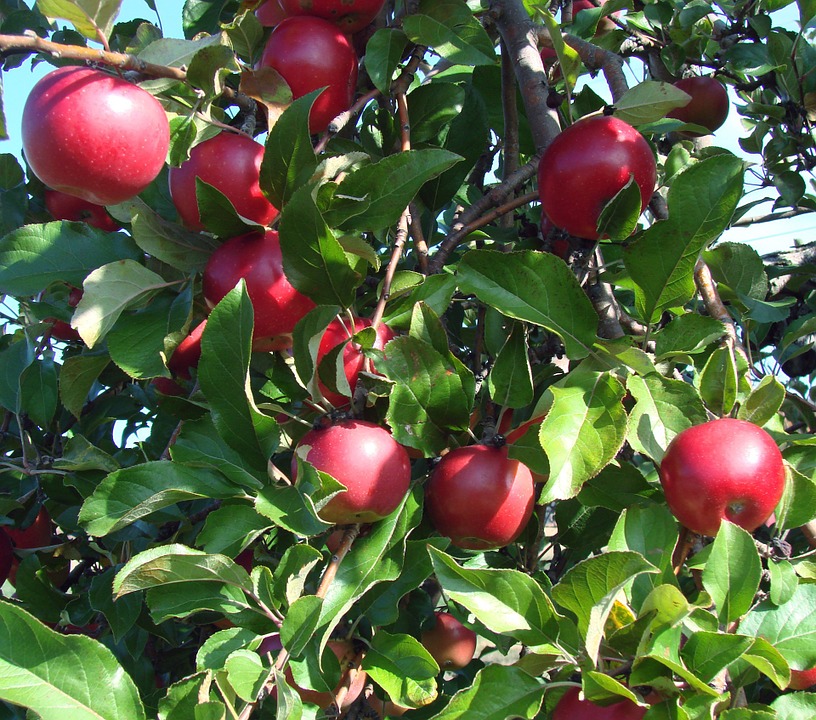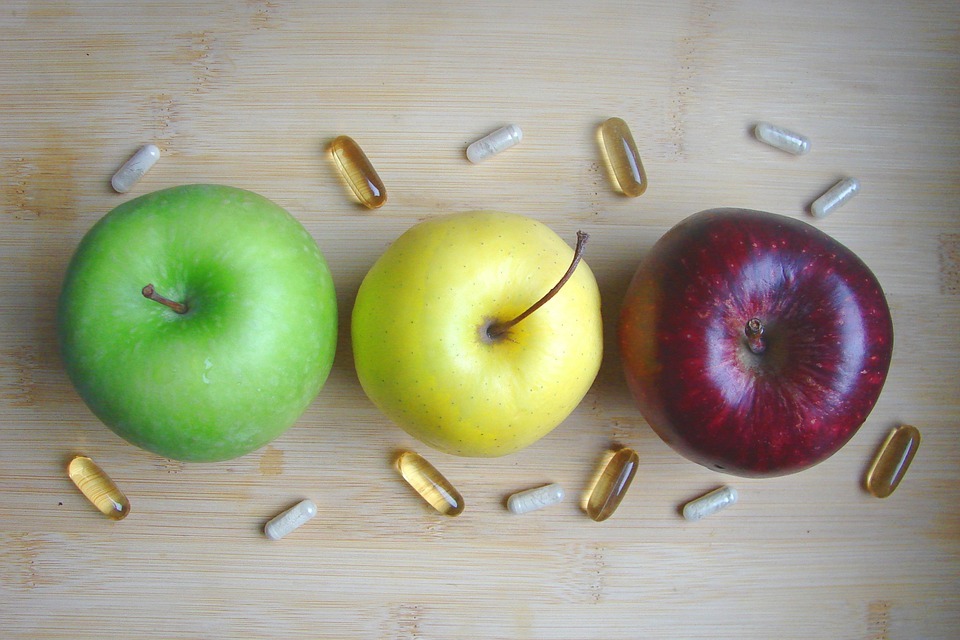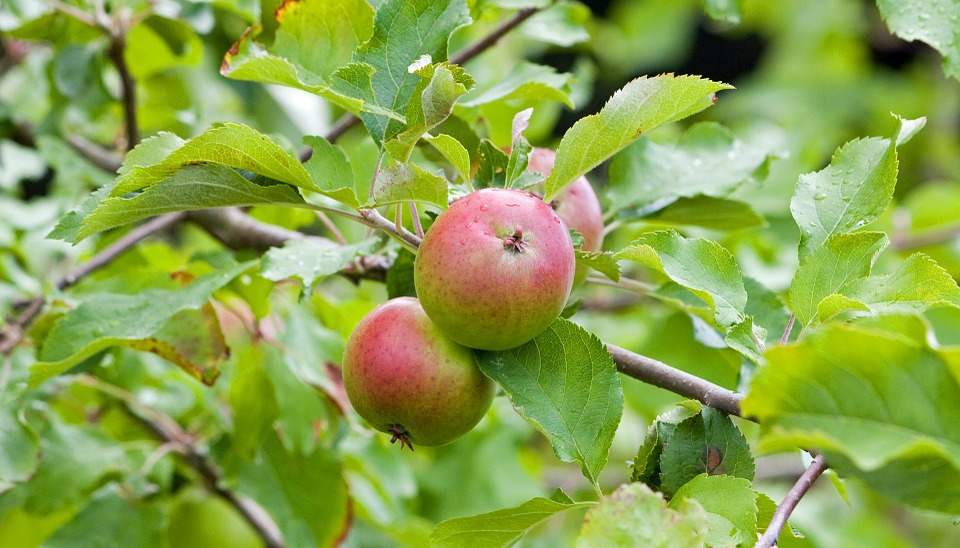This comprehensive guide explores the world of apples and dogs, addressing the question of whether these crunchy fruits are safe and beneficial for our canine companions. We'll delve into the nutritional benefits and potential risks, providing detailed advice on how to incorporate apples into your dog's diet safely and enjoyably. From choosing the right apples to preparing them properly, this guide equips you with the knowledge to make informed decisions about apples and your furry friend.
Part 1: The Apple-Dog Connection

1.1 Apples: A Nutritious Treat for Dogs
While apples are generally safe for dogs to eat in moderation, it's important to understand the potential benefits and risks involved. Apples are a good source of vitamins, minerals, and fibre, contributing to a healthy diet.
1.2 Nutritional Powerhouse: Unveiling the Benefits of Apples for Dogs
Apples are a surprisingly nutritious treat for dogs, offering a range of benefits:
- Vitamin A: Promotes healthy vision, skin, and immune function.
- Vitamin C: Boosts the immune system and acts as an antioxidant, protecting cells from damage.
- Potassium: Helps regulate blood pressure and muscle function, aiding in overall well-being.
- Fibre: Promotes healthy digestion and can help manage weight by creating a feeling of fullness.
1.3 The Potential Downsides: Exploring Risks Associated with Apples
While apples offer nutritional benefits, certain aspects require careful consideration:
- Seeds and Core: The seeds contain cyanide, a toxic substance that can be harmful to dogs in large quantities. It's crucial to remove the core and seeds before offering apples to your dog.
- Sugar Content: Apples are naturally sweet, so moderation is vital, especially for dogs with diabetes or weight issues. Excessive sugar intake can contribute to health problems.
- Gastrointestinal Upset: Eating too much apple, particularly if it's not properly chopped, can lead to stomach upset, diarrhoea, or vomiting, especially for dogs with sensitive stomachs.
Part 2: Incorporating Apples into Your Dog's Diet

2.1 Selecting the Right Apples: Choosing Quality and Safety
When choosing apples for your dog, opt for fresh, ripe varieties, such as Granny Smith, Honeycrisp, or Fuji, which are known for their taste and lower risk of stomach upset. Organic apples are a good choice to avoid pesticide residues.
2.2 Size Matters: Determining the Right Serving for Your Dog
The appropriate apple serving size depends on your dog's size and weight. Here's a general guideline:
- Small Dogs: A small slice or two
- Medium Dogs: A quarter of an apple
- Large Dogs: Half an apple
2.3 The Art of Preparation: Making Apples Safe and Delicious
Properly preparing apples for your dog is essential for their safety and enjoyment:
- Thorough Washing: Wash the apple thoroughly to remove any dirt or residue. Use clean water and a vegetable brush to ensure a clean surface.
- Core Removal: Remove the core and seeds meticulously. The seeds contain cyanide, which is toxic to dogs.
- Chopping into Bite-Sized Pieces: Cut the apple into small, bite-sized pieces to prevent choking hazards. This also makes it easier for dogs to digest.
- Avoid Cooking: Cooked apples can be harder for dogs to digest. Offering them raw is generally preferred.
Part 3: Feeding Apples to Your Dog

3.1 Apple Treats: A Healthy and Delicious Alternative
Apples offer a variety of ways to incorporate them into your dog's diet:
- Training Rewards: Small apple slices can be a healthy and motivating treat for training sessions, providing positive reinforcement.
- Homemade Dog Treats: Incorporate chopped apples into homemade dog treat recipes for added flavour, nutrients, and a healthy twist.
- Frozen Apple Treats: Freeze apple slices for a refreshing and long-lasting chew toy, perfect for hot days or teething puppies.
3.2 A Gradual Introduction: Avoiding Digestive Discomfort
When introducing apples to your dog, start slowly. Offer a small slice initially and observe their reaction. This allows you to monitor for any signs of digestive upset.
3.3 Moderation is the Key: Balancing Benefits and Risks
While apples offer nutritional benefits, it's crucial to remember they should be offered as a treat, not a staple in your dog's diet. Excessive intake can lead to weight gain and other health issues. Monitor your dog's apple consumption and keep it within a reasonable range.
Part 4: Frequently Asked Questions (FAQs)
4.1 Can dogs eat apple cores?
No, apple cores and seeds contain cyanide, which is toxic to dogs. It's crucial to remove them completely before offering apples to your dog. Even a small amount of cyanide can cause serious health problems.
4.2 Can dogs eat apple peel?
While apple peels are not toxic, they can be difficult for dogs to digest, especially for dogs with sensitive stomachs. It's best to remove the peel before offering apples to your dog, ensuring a smooth digestion experience.
4.3 Can dogs eat apple juice?
Apple juice is generally not recommended for dogs. It's high in sugar and lacks the fibre found in whole apples, which can contribute to weight gain and other health issues. Stick to offering whole apples for the most beneficial experience.
4.4 Can dogs eat apple cider vinegar?
Apple cider vinegar, in moderation, can be beneficial for dogs. It can aid digestion, support a healthy coat, and help with skin conditions. However, consult your veterinarian before introducing apple cider vinegar to your dog's diet, ensuring it's appropriate for their specific needs.
4.5 What if my dog eats an apple core?
If your dog ingests an apple core, closely monitor them for any signs of poisoning, such as vomiting, diarrhoea, or lethargy. Contact your veterinarian immediately if you notice any symptoms, allowing them to assess the situation and provide appropriate guidance.
4.6 Can dogs eat apple pie filling?
Apple pie filling, with its added sugars and spices, is not suitable for dogs. The high sugar content can lead to weight gain and dental problems, and some spices can be harmful to dogs.
4.7 Can I give my dog a whole apple?
It's best to avoid giving your dog a whole apple, as they may struggle to swallow it, leading to choking. Chopping the apple into small pieces reduces this risk and makes it easier for them to enjoy.
4.8 Can I give my dog apple skin?
Apple skin is generally safe for dogs, but some dogs may find it difficult to digest. It's best to remove the skin before offering apples to your dog, especially if they have sensitive stomachs.
This detailed guide aims to provide comprehensive information on apples and dogs. Remember, moderation is key, and always consult your veterinarian for any specific dietary advice. Enjoy the healthy and delicious treat of apples with your furry friend!
Everyone is watching
-

Can Dogs Eat Bananas? A Guide to Safe Treats
DOGS & PUPPIESThis comprehensive guide will delve into the world of canine nutrition, focusing on the popular question: can ...
-

Can Dogs Eat Oranges? (Is It Safe or Toxic?)
DOGS & PUPPIESThis article delves into the question of whether dogs can safely consume oranges. We'll explore the nutrition...
-

Can Dogs Eat Grapes? The Shocking Truth About This Fruit
DOGS & PUPPIESThis article delves into the controversial topic of grapes and dogs, exploring the potential dangers associate...
-

Why Do Dogs Eat Poop? Understanding Coprophagia in Dogs
DOGS & PUPPIESThis article delves into the perplexing phenomenon of coprophagia, the act of eating faeces, in dogs. We explo...
-

Can Dogs Eat Shrimp? A Guide to Safety and Risks
DOGS & PUPPIESThis comprehensive guide dives into the world of shrimp and dogs, exploring the potential benefits and risks a...
